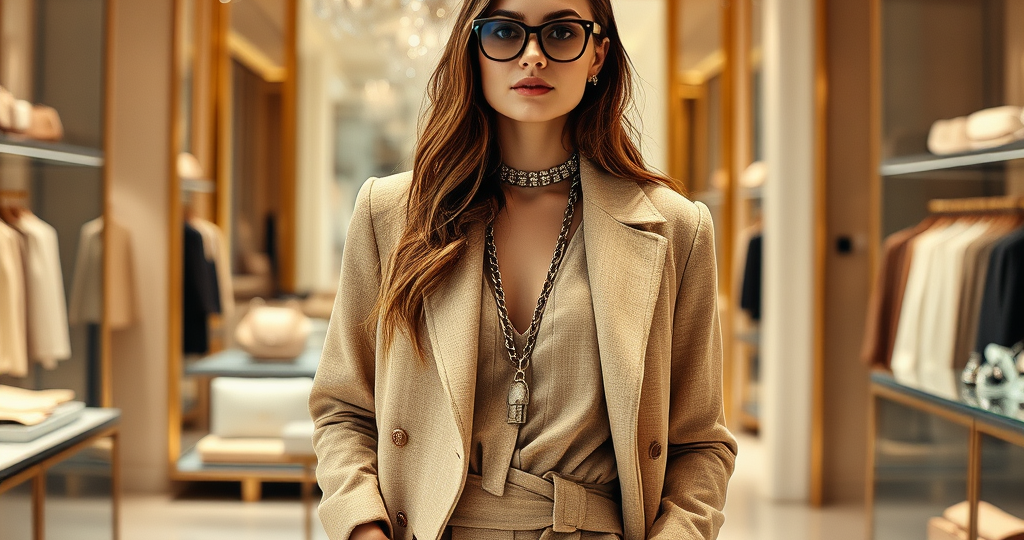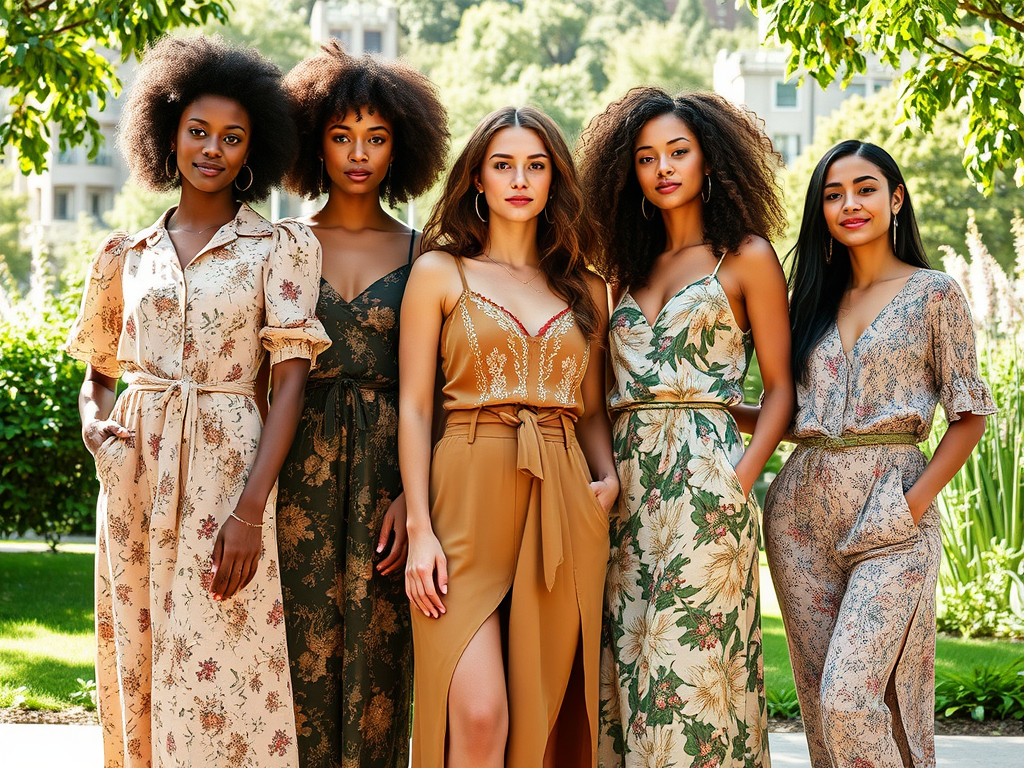
Top Female Clothing Brands: A Global Perspective
As the global fashion industry evolves, it increasingly reflects the diverse cultural, ethical, and stylistic choices women make today. From the runways of Paris to the bustling streets of Tokyo, female clothing brands are not just about fabric and design; they represent empowerment, individuality, and increasingly, sustainability. In an era where consumers are vocal about their values, brands that align with ethical practices, artistic expression, and inclusivity are rising to the forefront. In this exploration, we’ll delve into some of the most influential female clothing brands around the world, categorizing them into luxury, sustainable, fast fashion, and regional highlights. Are you ready to discover the labels that not only clothe women but also shape the very fabric of contemporary society?
Luxury brands hold a prestigious position in the realm of women’s fashion and have defined the aesthetics of style for generations. These brands often symbolize affluence and are known for their impeccable craftsmanship and exclusive collections. They offer more than just clothing; they provide a lifestyle embedded in elegance and sophistication. For many women, owning a piece from a luxury brand is a statement of personal style and success. Names like Chanel, Gucci, and Dior have become synonymous with haute couture, each showcasing an artistic vision that resonates with diverse audiences across the globe. The intricate designs and high-quality materials used in these collections create pieces that can transcend seasonal trends.
Trendsetting Luxury Brands

- Chanel: Renowned for its timeless elegance.
- Gucci: Known for its eclectic designs and bold aesthetics.
- Dior: Celebrated for its sophisticated silhouettes and innovation.
This elite trio of luxury brands consistently ranks among the top choices for fashion-forward women seeking statement pieces. Each of these brands not only sets trends but often also influences the fashion dialogues of the seasons. Their unique stories, synonymous with high fashion, make them a staple in the wardrobes of many style-savvy women.
Sustainable Fashion Brands

As awareness of environmental issues grows, women’s clothing brands focusing on sustainability are taking the fashion world by storm. These brands often employ eco-friendly materials and ethical labor practices, aiming to reduce their carbon footprint while making stylish choices accessible. They serve a dual purpose: providing beautiful clothing while actively contributing to the global movement towards sustainability.
- Reformation: Offers stylish options while prioritizing sustainability.
- Patagonia: Combines practicality with environmental responsibility.
- Eileen Fisher: Advocates for simplicity and ethical production.
These brands highlight a significant shift in consumer preferences towards sustainable practices, appealing to a demographic increasingly concerned about the impact of their purchases. As consumers become more aware, the demand for sustainable and ethically produced fashion options continues to rise. This trend indicates a new era in fashion that could lead to substantial changes in how brands operate and connect with their customers.
| Brand | Country | Sustainability Focus |
|---|---|---|
| Reformation | USA | Eco-friendly materials and ethical practices |
| Patagonia | USA | Support for environmental causes |
| Eileen Fisher | USA | Simple design and local sourcing |
Fast Fashion Powerhouses
Fast fashion brands, despite the controversies that often surround them, have made a significant impact on the affordability and accessibility of modern women’s fashion. Catering primarily to a broad range of consumers, these brands provide the latest trends at budget-friendly prices. They thrive on agility: fast production cycles allow them to quickly turn around new styles that capture current trends. However, the rapid production comes with challenges, including environmental concerns and ethical practices.
- Zara: Known for its quick turnaround on runway trends.
- H&M: Offers affordable fashion while increasing focus on sustainability.
- Forever 21: Targets younger audiences with trendy, budget-friendly options.
While these brands have faced criticism for their impact on the environment and labor practices, they undeniably play a pivotal role in shaping the industry. Their ability to swiftly adapt to fashion trends ensures that consumers always have access to what’s in vogue. Understanding the implications of fast fashion is crucial for consumers who want to make informed choices.
Regional Highlights
Women’s clothing brands also reflect cultural trends and regional styles. Here, we explore notable names from different parts of the world that have gained international acclaim, offering a diverse tapestry of fashion.
Asia
Uniqlo offers functional yet stylish clothing with a minimalistic approach, effectively combining comfort with contemporary style. Simultaneously, Zalora stands out as a leading online fashion retailer that showcases local brands, promoting regional designers on a global stage.
Europe
In Europe, Mango is a Spanish brand recognized for its chic and affordable collections, often combining European craftsmanship with modern designs. Alternatively, COS represents a Swedish ethos that quintessentially blends understated elegance with a focus on workwear, appealing to a diverse global clientele.
America
Across the Atlantic, Free People is celebrated for its bohemian-inspired apparel, offering clothes that express individuality and freedom. Meanwhile, Lulus, an online store, is known for trendy dresses and casual wear, catering specifically to a younger audience seeking affordable yet style-driven options.
Conclusion
The landscape of female clothing brands is rich and diverse, reflecting varying consumer needs and values across the globe. From luxurious haute couture to affordable fast fashion, women today have an abundance of choices that cater to their unique tastes and preferences. As we navigate through the myriad of clothing options available, understanding the impact of these brands on cultural and ethical levels becomes paramount. The brands that resonate most will be those that embody the values women are looking for: authenticity, sustainability, and style. As fashion continues to evolve, so too will the brands that shape its future. It will be fascinating to witness how the industry adapts and inspires the next generation.
Frequently Asked Questions
- What are the top luxury brands for women’s clothing? Chanel, Gucci, Dior.
- Which brands focus on sustainable fashion? Reformation, Patagonia, Eileen Fisher.
- What are some well-known fast fashion brands? Zara, H&M, Forever 21.
- How do regional brands differ in style and offerings? Each region’s brands reflect cultural influences and cater to local tastes, offering unique styles and options.
- Why is sustainability important in the fashion industry? It promotes environmentally friendly practices, reducing waste and supporting ethical labor conditions.